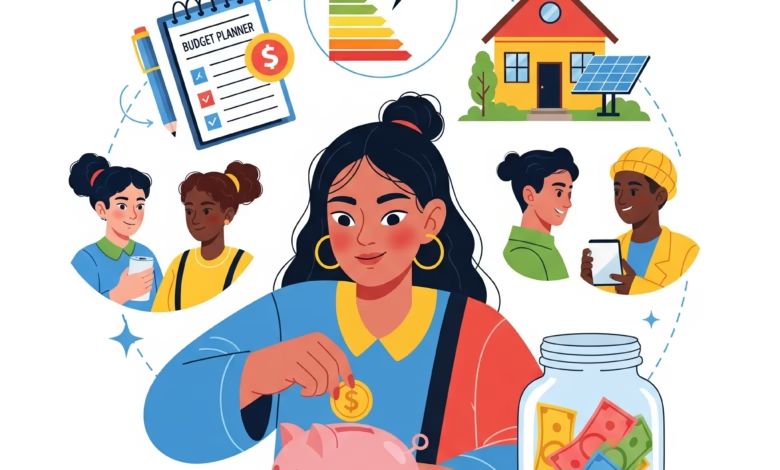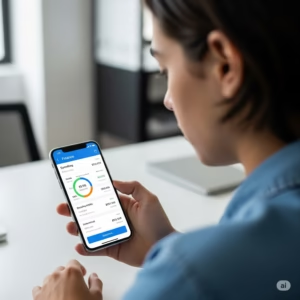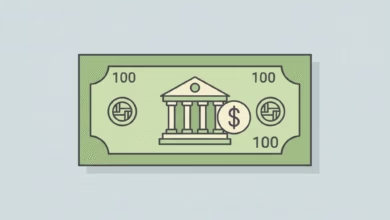Can I pay off my loan installments in advance?
Find out how to pay off your loan installments in advance

Taking out a loan is a common financial step, but what happens if your financial situation improves and you find yourself with extra cash? Many people wonder if they can pay off their loan faster than planned by prepaying installments. The short answer is usually yes! Prepaying your loan can be a smart move, offering significant benefits. This article will explain how loan prepayment works, why it’s often a great idea, and what you need to consider before making extra payments.
Understanding Loan Prepayment: How Early Payments Work

Loan prepayment means making additional payments towards your loan balance beyond your regularly scheduled monthly installment. This can involve:
- Making extra payments: Sending in more than your minimum payment each month.
- Making lump-sum payments: Paying a large sum of money at once (e.g., from a bonus, tax refund, or inheritance).
- Paying off the entire loan balance early: Clearing the remaining debt in one go.
When you prepay, the extra money typically goes directly towards reducing your principal balance – the original amount you borrowed. This is crucial because interest is usually calculated on the remaining principal.
The Big Benefits of Prepaying Your Loan: Save Money and Gain Freedom
Prepaying your loan isn’t just about finishing faster; it comes with several compelling financial advantages:
- Significant Interest Savings: This is the biggest benefit. By reducing your principal balance sooner, you reduce the amount of interest that accrues over the life of the loan. The less principal you owe, the less interest you pay.
- Paying Off Debt Faster: You shorten the overall loan term, freeing yourself from monthly payments sooner.
- Reduced Debt Burden and Stress: Eliminating debt can significantly improve your financial well-being and reduce stress. It frees up cash flow for other financial goals.
- Improved Debt-to-Income Ratio: A lower debt-to-income (DTI) ratio looks good to future lenders, potentially making it easier to qualify for other loans (like a mortgage) or better interest rates.
- Increased Financial Flexibility: Once a loan is paid off, the money previously allocated to payments becomes available for saving, investing, or other priorities.
Checking for Prepayment Penalties: Read Your Loan Agreement Carefully

Before you get too excited about saving money, it’s essential to check if your loan has a prepayment penalty. While many personal loans, auto loans, and mortgages in certain regions no longer have these, some still do, particularly older loans or specific types of financing.
- What is a Prepayment Penalty? It’s a fee charged by the lender if you pay off all or a significant portion of your loan before the scheduled end date. Lenders use these to recover some of the interest income they lose when you prepay.
- How to Check: Carefully read your loan agreement (promissory note). Look for terms like “prepayment penalty,” “early payment fee,” or clauses about how extra payments are applied.
- Contact Your Lender: If you’re unsure, call your bank or loan provider directly and ask. Get the information in writing if possible.
Even if there’s a small penalty, the interest savings from early repayment often outweigh the fee. However, it’s crucial to know the cost upfront.
How to Prepay Your Loan: Step-by-Step Guidance
Once you’ve confirmed there are no prohibitive penalties, here’s how to ensure your extra payments work for you:
- Contact Your Lender First: Always inform your lender of your intention to make extra payments. Crucially, specify that you want the additional amount applied directly to your principal balance, not towards future interest or future scheduled payments. If you don’t specify, some systems might just apply it to your next scheduled payment, which reduces the benefit.
- Make Extra Payments:
- Online Portal: Most lenders have an online portal where you can make additional principal-only payments. Look for an option like “Apply extra payment to principal” or “Additional principal payment.”
- Phone Call: You can call your lender’s customer service and make a payment over the phone, again, explicitly stating it’s for principal reduction.
- Mail a Check: If paying by check, write “Apply to Principal Only” clearly on the check’s memo line and include your loan account number.
- Confirm Application: After making an extra payment, check your next statement or online account activity to ensure the payment was applied correctly to your principal balance. You should see a reduction in your outstanding principal.
- Recalculate Savings (Optional but Recommended): While not strictly necessary, using an online loan calculator to see how your early payments affect the remaining term and total interest paid can be motivating.
When Prepaying Might NOT Be the Best Idea: Alternative Uses for Your Money

While often beneficial, prepaying isn’t always the absolute best financial move for everyone. Consider these situations:
- High-Interest Debt Elsewhere: If you have other debts with significantly higher interest rates (e.g., credit card debt with 20%+ APR), it almost always makes more sense to pay off those high-interest debts first.
- No Emergency Fund: If you don’t have an adequate emergency fund (3-6 months of living expenses saved), prioritizing that fund over loan prepayment is crucial for financial security.
- Opportunity for Higher Returns: If you have investment opportunities that reliably offer a higher return than your loan’s interest rate (e.g., a diversified stock market portfolio), investing might be more beneficial than prepaying, though this comes with higher risk.
- Future Financial Needs: If you anticipate a major expense in the near future (e.g., a down payment on a house, significant medical costs), keeping your cash liquid might be a better strategy.
Final Thoughts: Prepayment as a Smart Financial Strategy
For most people, the ability to prepay loan installments is a powerful tool to save money, reduce debt, and gain financial freedom faster. By understanding your loan agreement, knowing how to make extra payments correctly, and weighing the benefits against other financial priorities, you can strategically accelerate your journey to being debt-free. Always prioritize your overall financial health, but know that prepayment is often a very smart option to consider.





